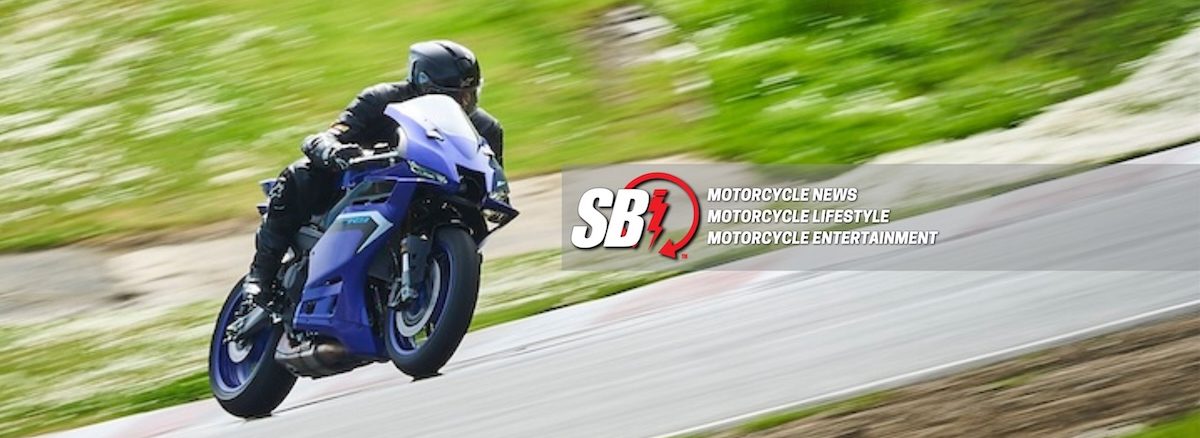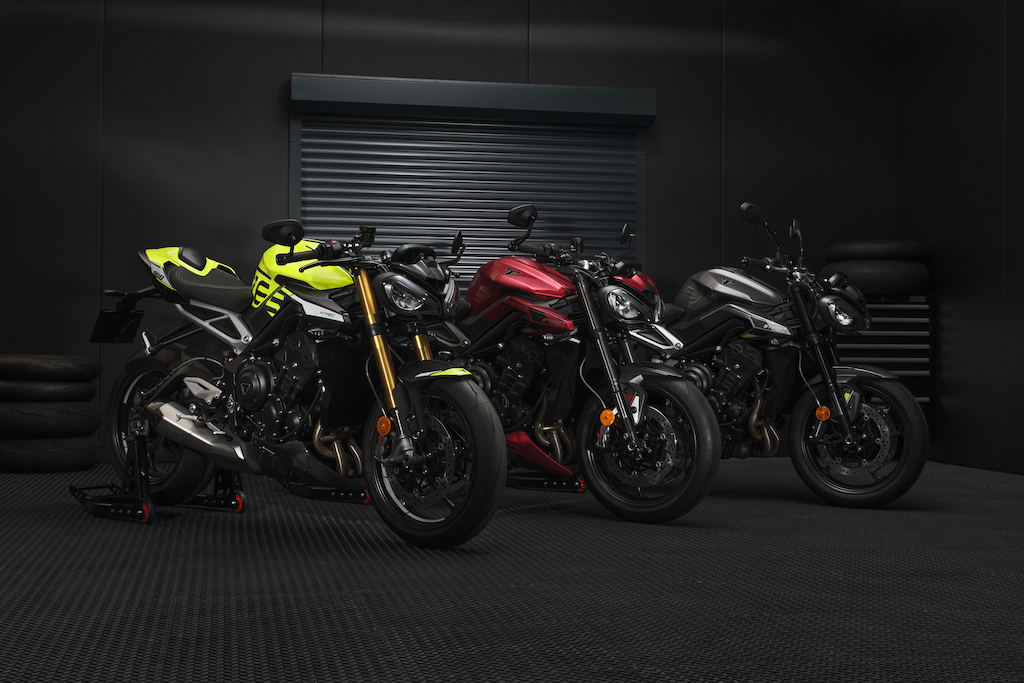
Triumph’s junior naked bike, the Street Triple 765, gets a thorough reworking for 2023.
Using the backdrop of the final MotoGP of the season at Valencia, Triumph has taken the wraps off a fully revised Street Triple 765 family for the 2023 model year.
Comprising of three models—the $9,995 765 R, $12,595 765 RS, and $15,395 765 Moto2 Edition that will be limited to 1530 units (765 each of the two colors available) — the new Street Triple range will go squarely after market leaders Yamaha with the MT-09, as well as MV Agusta’s Brutale, Suzuki’s GSX-S750, and the KTM 890 Duke R range.

Each model will be powered by the same inline triple the brand has championed for the best part of a generation, with the base 765 R producing 118 hp, while the RS and Moto2 editions will both produce 128 hp. The new motor features new pistons, conrods, valves, combustion chambers, an increased compression ratio from 12.65:1 to 13.25:1, and camshafts, with a shorter final drive delivering snappier, faster acceleration.

Along with the motor, there are plenty of chassis and running gear differences between the base 765 R and the RS and Moto2 models. The 765 R runs a Showa 41mm Separate Function Big Piston Fork (SF-BPF) and a Showa monoshock, with the RS gaining a higher-spec 41mm Showa Big Piston Fork (BPF) and an Ohlins STX40 shock. The Moto2 edition will have NIX30 forks and the same STX40 shock as the RS.
Switching to the brakes, the R gets dual Brembo M4.32 four-piston radial calipers working 310 mm fully floating discs for the front and a single-piston caliper at the rear. The RS and Moto2, however, get Brembo Stylema R four-piston radially-mounted calipers, 310 mm fully floating discs and a Brembo MCS radial master cylinder with a span and ratio adjustable lever. A single-piston caliper, the same as on the R, goes with both the RS and Moto2.

The tires are also different, with the R using Continental ContiRoad rubber while the RS and Moto2 versions get Pirelli Diablo Supercorsa SP V3 units.
All three models bare the same chassis architecture in the aluminum beam twin-spar frame with a two-piece high-pressure die cast rear subframe and gull wing-style swingarm, but there are subtle differences in dimensions. The R gets a 32.52-inch seat height, compared to 32.91-inch for the RS and 33.03 in. for the Moto2. The R and RS get a 0.47 in. wider single piece handlebar while the Moto2 gets clip-on handlebars that sit 3.1 in. lower and 1.97 in. further forward.
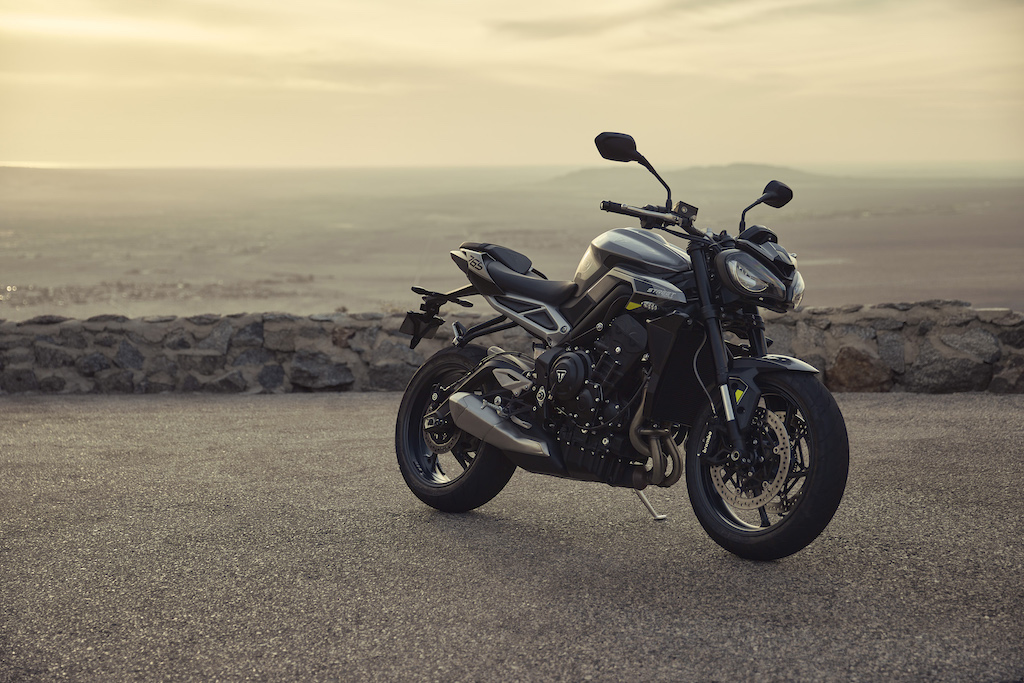
The RS and Moto2 also have slightly sharper steering geometry, with 23.2 degrees for the RS and 23.0 degrees for the Moto2 versus 23.7 degrees for the R, and a taller rear ride height. The wheelbases are also different, with 55.2 in. for the R, 55.08 in. for the RS, and 55 in. for the Moto2.
Moving onto the electronics, there’s a six-axis IMU mitigating the new Cornering ABS and traction control settings. A five-inch TFT dash is mission control and houses four riding modes of Road, Rain (which limits power output to 98 hp), Sport and Rider-configurable, while the RS and Moto2 will get five riding modes (as well as an onboard lap timer), the extra being a Track for the most aggressive performance.
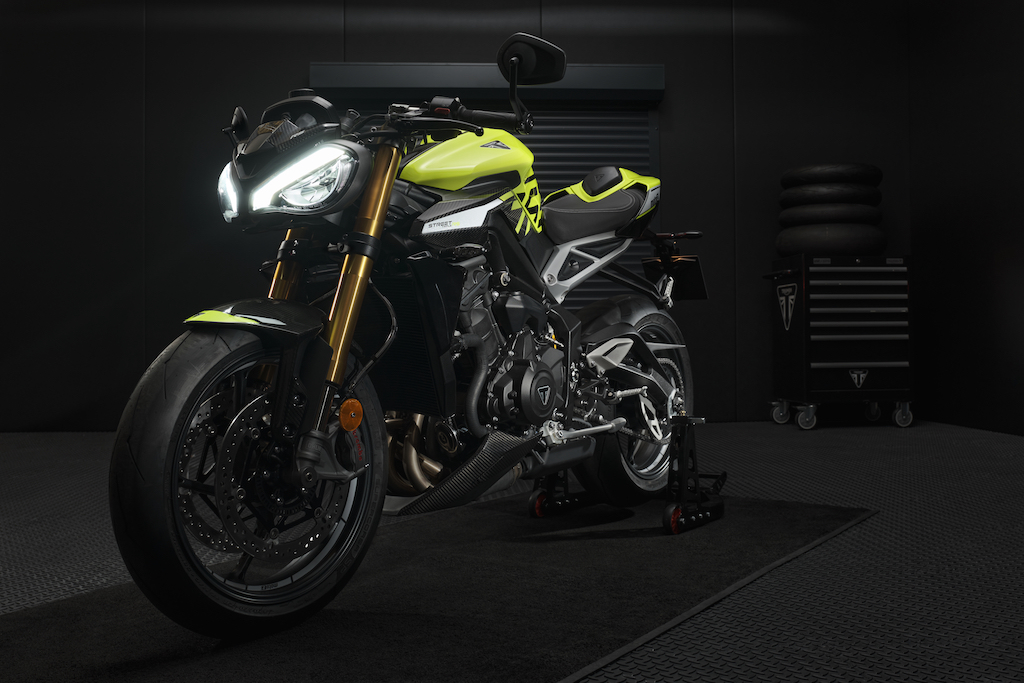
The second a unit becomes available, we’ll have a full test on the new Street Triple 765 range for you here at SBI.
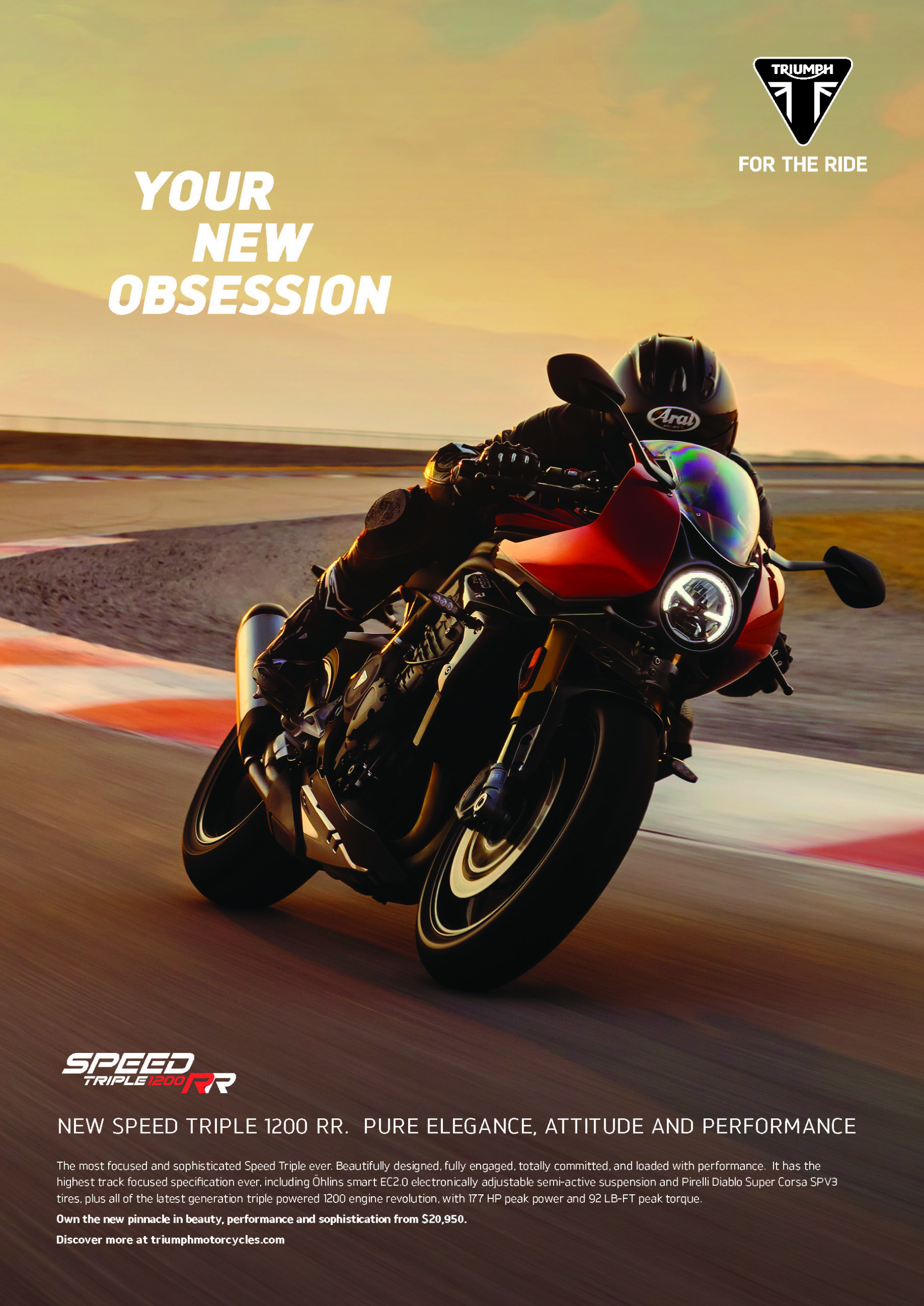
About The Author
Discover more from SportBikes Inc Magazine
Subscribe to get the latest posts sent to your email.
